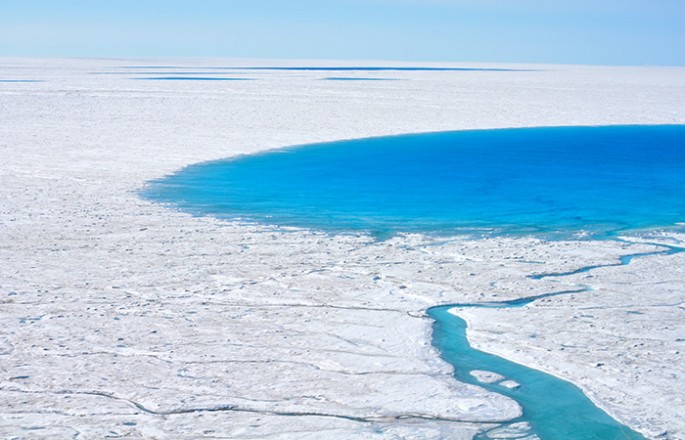Scientists who are studying the effects of climate change and how sea levels are rising have now revealed that the last time the planet experienced this kind of global warming, sea levels went up at a whopping 20 feet.
According to geochemist Andrea Dutton from the University of Florida, the past temperatures that were similar to the global average of today has melted ice sheets in Greenland and Antarctica that caused sea levels to rise at unprecedented rates.
This new finding is suggesting that Earth can face a similar challenge if no significant plan of action is carried out to reduce greenhouse gas emissions.
Dutton further explains that when the planet is warming, the polar regions are getting warmer at a faster rate where this can severely affect ice sheets located in Antarctica and Greenland. This sea level rise will not occur overnight but polar ice sheets are the most susceptible to the effects of global warming that is caused by elevating temperatures that may occur within decades.
According to the international team of researchers, some 125,000 years ago, sea levels apparently have risen to 20 to 30 feet when the global temperature was one degree Celsius higher compared to preindustrial levels.
Apart from this, similar sea level rising events also took place during a time when Earth was also going through a similar period some 400,000 years ago. Researchers also reveal that another period some 3 million years ago also had similar carbon dioxide levels that were also as high as today.
Dutton explains that they have examined these three different warming periods and analyzed several of the warmest interglacials where each of them presented at least 6 meters worth of sea level rise. To date, the Greenland and Antarctic ice sheet are adding up to sea levels for a few millimeters every year where scientists are getting more concerned about the amount of ice they hold.
When climate change reaches its tipping point and accelerates all this melting, the ice in Greenland can raise global sea levels up to 20 feet where all the ice in Antarctica can raise them up to 200 feet.
If climate change trends continue without any significant reduction of greenhouse gas emissions, this 20 to 200 feet rise will soon become a reality even if the planet have just seen a 20 centimeter rise in the last century. This new finding is published in the journal, Science.



























